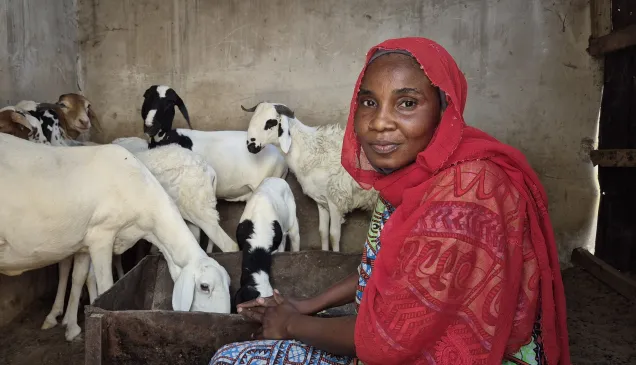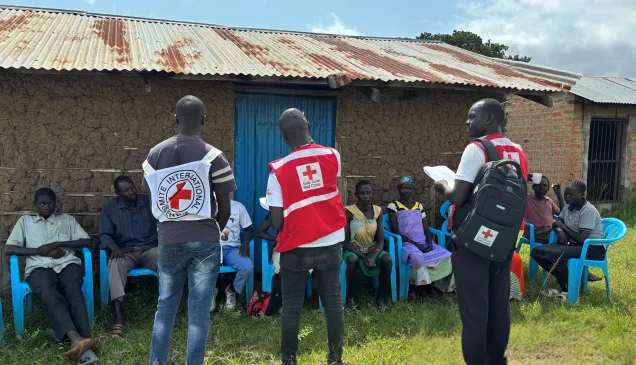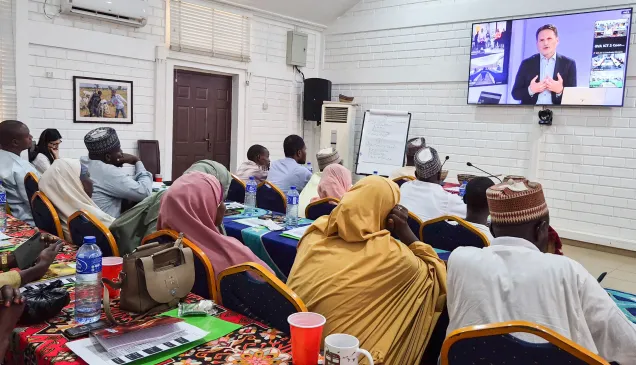Nigeria: Private sector partnerships restore hope to conflict-affected communities
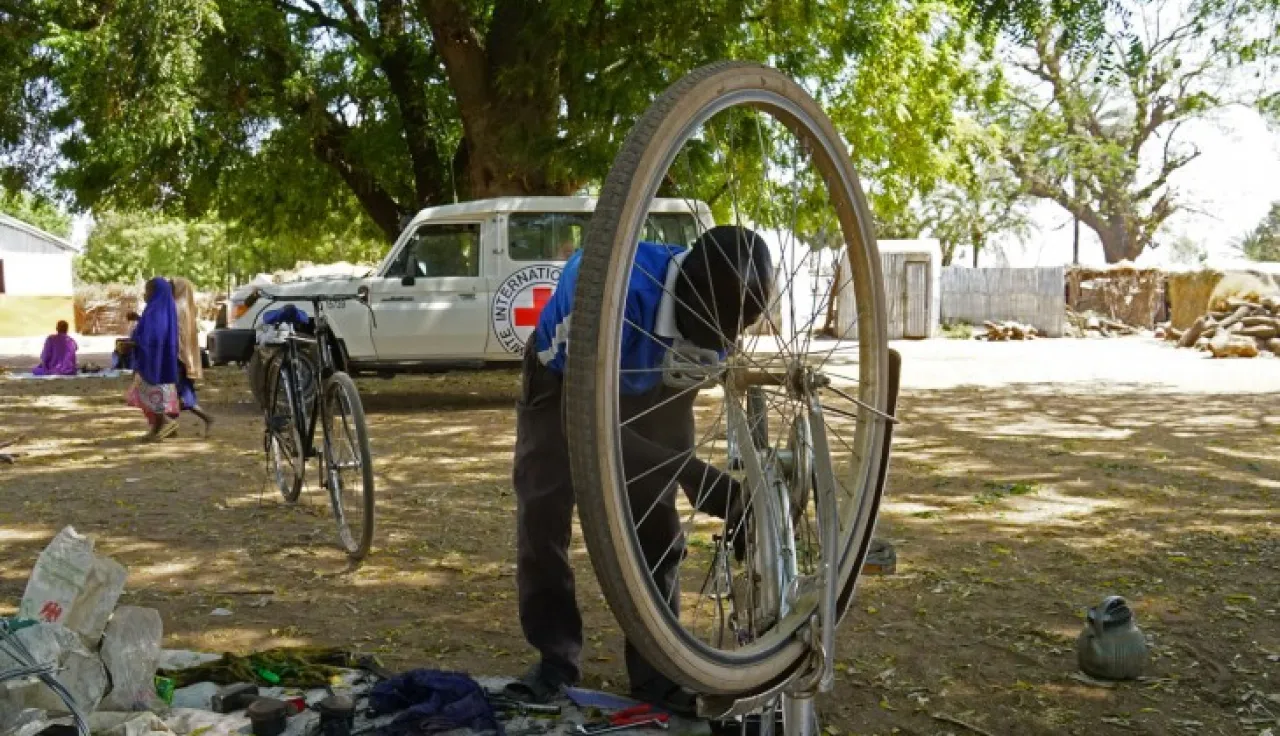
Mohamed Sheikh-Ali coordinates ICRC's economic security response in Nigeria, one of the largest economic security programmes in Africa. Since early 2017, the delegation in Nigeria has been gradually switching from emergency assistance to programmes that help both the displaced people and those who have returned home after displacement start earning income and providing for themselves. The delegation has used innovation and formed partnership with universities, government bodies and the private sector to accomplish this. Mohamed explains the Nigeria experience both as a steep learning curve and an example to follow.
Question: How is ICRC assisting communities so that they can recover in the long-term?
Mohamed: The ICRC assistance doctrine has always guided us to link the emergency relief phase of our response to the recovery one. We design our assistance programmes in such a way that people we help are encouraged and assisted to resume their livelihood activities as soon as it is safe for them to do so. This entails helping affected communities replenish their livelihood assets and reviving service ecosystems. For years, the ICRC has been running small-scale projects to strengthen economic recovery. The aim of these projects often goes beyond the individual beneficiary family that will generate direct income. The wider community also reaps socio-economic benefits from the start-ups supported by the ICRC. They generate employment opportunities and strengthen social networks. We prefer these projects as they restore independence to individuals and communities affected by armed conflict or violence and generate long-term benefits. At the same time, we continue providing emergency assistance when it is necessary, for example to newly displaced people who need food and other essential items to survive.
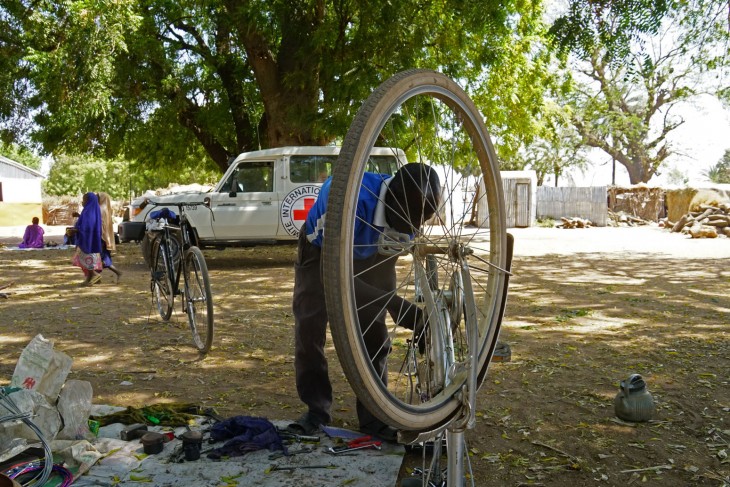
As we continue to provide vital assistance to people displaced by the conflict in north eastern Nigeria, we are also working to develop a sustainable program that would help them create income generating activities. CC BY-NC-ND / ICRC / Adavize Baiye
Question: What's a specific example of that approach in Nigeria?
For instance in 2017 alone, over half a million people in the north-east and Niger Delta regions received agricultural inputs and tools that improved the quality of their harvest. They also received cash assistance that helped establish income-generating activities. As a result, many of the widows we supported in the north-east with small grants are now employing others.
Our partnerships with the private sector is another clear example. The concept behind this collaboration stems from a real need identified by people we have assisted. When in early 2016 we went back to assess the results of the agriculture support we provided to people returning to Mubi town, Adamawa state, after displacement, their voices were loud and clear. "Thank you, we do not need any more relief. We have harvested enough!"
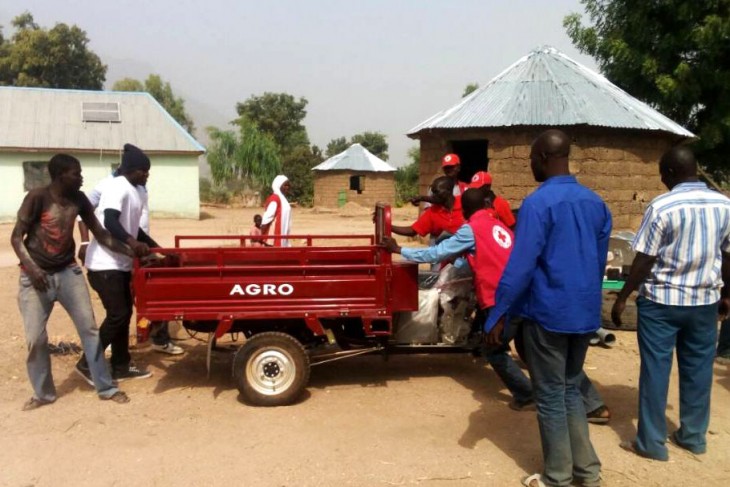
The benefits of this truck are much larger than its size: it transports the fresh produce to Michika market, Adamawa state and has revivified the trade in the area. When providing cash grants, we aim to assist not only one individual or family, but also a wider community. CC BY-NC-ND / ICRC / Abubakar Laido
However, the community was facing a different type of challenge. The private maize mill, oil press and other post-harvest processing services at the town were not working; either damaged in the conflict or rusted up for want of use while the town residents were displaced. The best way to revivify such services in post-conflict situations is to assist the very entrepreneurs that used to deliver and maintain them as their source of income. That is why the ICRC all over the world encourages programmes supporting economic recovery of communities devastated by conflict and violence.
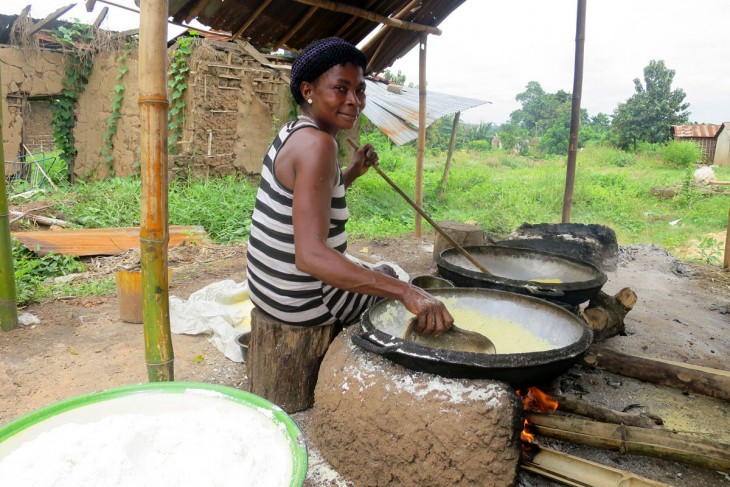
The ICRC is striving to empower women affected by violence in the Niger Delta who are among the most vulnerable in their communities. Sarah received assistance to restart her garri making business, a staple food made from cassava. She can now support her family and is once again a productive member of her community. CC BY-NC-ND / ICRC / Adavize Baiye
Question: You recently started a partnership with the Tony Elumelu Foundation in Nigeria. How will that partnership improve lives?
We foresee a collaboration that will allow us to take the small scale initiatives to another dimension. It will allow us to cater for the needs of young professionals, displaced from their homes and communities who are seeking help with projects that are apt to bring about a real change for the better in their communities. Business ideas have already begun pouring in and a great deal of them are unique and impressive. We already have collected ideas of hundreds of men and women who have returned to their homestead and started working to help themselves and their communities. Examples of these ideas include mobile solar irrigation, a veterinary pharmacy, a microfinance project, a grain mill, modern fish processing and many others that, if supported and implemented, will lay the foundation for a sustainable socio-economic recovery in areas of return.
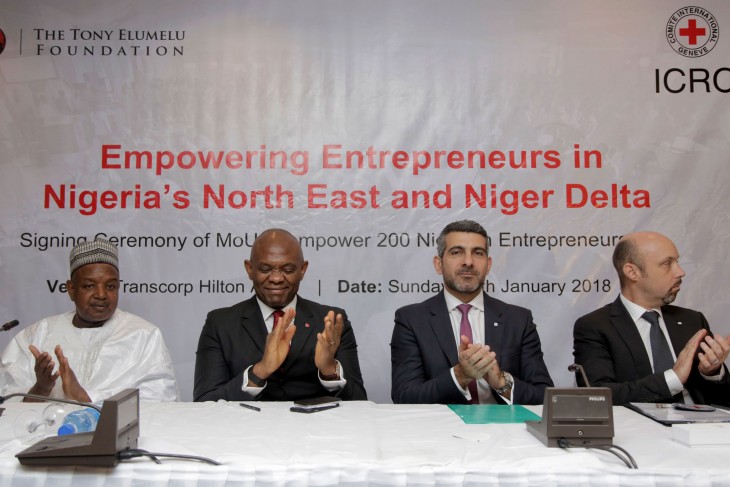
In January 2018, Tony Elumelu (second from left), founder of the Tony Elumelu Foundation and Patrick Youssef (third from left), ICRC Deputy Director for Africa signed a partnership agreement to holistically address, through innovative interventions, the economic plight of communities affected by armed conflict or violence in Nigeria, with a view to expand the partnership to other African countries. CC BY-NC-ND / ICRC / Imad Ulayi
We talk daily to these communities and understand their needs. In the Tony Elumelu Foundation, we have found a confirmed specialist entrepreneurship development programme that will augment the success of the people we assist. Thanks to our direct access to the communities, we are removing the obstacles faced by innovators trying to access the online application, training and mentoring programme offered by the Foundation. We will bring the mentors of the Foundation to these people and thus hopefully break the sense of despair and hopelessness that has consumed many young people in the conflict and violence affected areas. We are enthusiastic about this partnership and hope to replicate it in other African countries.

